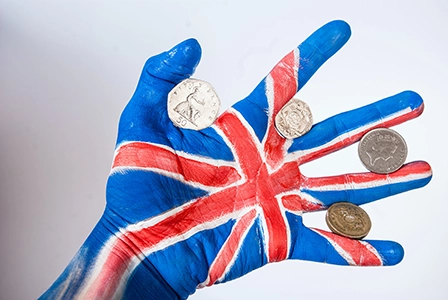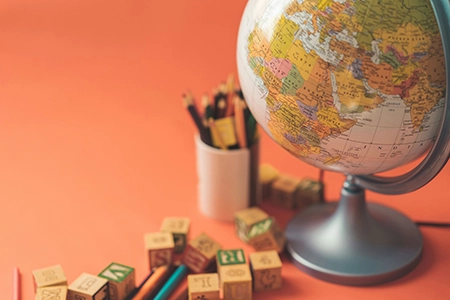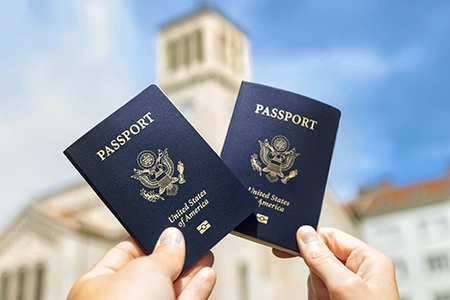In today’s global economy, international business is crucial for the growth and success of nations. Turkiye and the United Kingdom have a strong trade relationship beyond buying and selling goods. This relationship is built on mutual understanding and communication, where translation plays a key role.
Turkiye and the UK are both important economies on the edge of Europe. They have worked hard to develop a complex business relationship with a strong trade agreement and plans for future collaborations. However, to keep this relationship running smoothly, effective translation is essential. Translation is not just about changing words from one language to another. It’s about bridging cultural differences, explaining legal details, and ensuring both sides are understood.
In this blog post, we will see how translation helps to make the business relationship between Turkiye and the UK stronger. Translation plays a vital but often overlooked role in international business, from legal documents to important meetings. It helps to create clarity and understanding, which is crucial for successful partnerships. So, let’s look at how translation helps bring Turkiye and the UK closer together and ensures their business relationship grows.
Overview of Turkiye-UK Trade Relations
Trade relations between Turkiye and the United Kingdom have proven to be a shining example of the power of international commerce in today’s global economy. These two nations, situated outside the European Union, have built a strong and intricate web of economic interactions, highlighting the importance of their partnership.
At the heart of this relationship is a significant trade agreement that has safeguarded business interests worth $25 billion. This agreement is not just a financial arrangement but a deep commitment to mutual growth and economic collaboration. Turkiye is a significant trading partner for the UK, second only to Germany in export volume. The UK sees Turkiye as a crucial ally in its ‘Global Britain’ agenda, recognising its strategic market potential and geopolitical importance.
This trade relationship took on even more significance after Brexit when the UK needed to secure and redefine trade agreements. The UK-Turkiye trade deal ensured the continuation of tariff-free trade on various non-agricultural products, a critical aspect for both economies.
The trade between the two nations covers a wide range of sectors. From the UK’s perspective, exports to Turkiye include motor vehicles and parts, industrial machinery, pharmaceuticals, and mechanical appliances. Turkiye, in return, supplies the UK with precious metals, vehicles, textiles, and electrical equipment. This reciprocal exchange highlights a balance of trade and synergy of industrial strengths and market needs.
Effective communication and cultural understanding are essential for the success of this bilateral partnership. Accurate translation of the complexities of trade agreements, legal documents, and business negotiations in Turkish and English is crucial to this relationship’s prosperity.
In summary, Turkiye-UK trade relations are a vibrant and evolving economic partnership. As these two nations navigate the post-Brexit era, they remain committed to strengthening and diversifying their trade ties, indicating a shared vision for a prosperous future anchored in mutual respect and understanding.

Seeking precise and reliable translation services in London?
Look no further! Haluk Aka Ltd offers expert translation with express delivery options across the United Kingdom. Click the button below to send your documents and receive a completely free, no-obligation quote. Elevate your international business communications today with professional translation services.
Significance of the Trade Deal Post-Brexit
The recent trade deal signed between Turkiye and the United Kingdom after Brexit is significant for both nations. This agreement helps protect their important trade relationship, which is crucial for their economies. It’s a significant step for both countries, especially for the UK, which is looking to establish new global trade relationships after leaving the European Union.
For the UK, this deal is part of their ‘Global Britain’ strategy. It helps the UK maintain an essential trade agreement with Turkiye, a significant market and a vital player in international trade. The deal ensures that trade between the UK and Turkiye remains uninterrupted, just as before Brexit.
For Turkey, this deal is also very important. The UK is a significant trading partner, and this agreement offers stability and continuity, which is essential for Turkiye’s economy. It helps prevent any potential disruptions in trade, which could have a severe impact, especially on industries like automotive and textiles.
Moreover, this deal is also significant for Turkiye’s relationship with the European Union. It provides a template for renegotiating its customs union with the EU, which could be very important for Turkiye’s trade relations in the future.
Overall, this trade deal between Turkiye and the UK post-Brexit is about maintaining the status quo and building a resilient and adaptive framework for future trade. It symbolises a mutual recognition of the potential for growth and the importance of sustaining strong economic ties in a rapidly changing global landscape. As both countries navigate new challenges and opportunities, the significance of this trade agreement as a cornerstone of their economic relationship cannot be overstated.
Emerging Opportunities in Tech, Services, and Digital Sectors
The trade relationship between Turkiye and the UK is changing, and exciting opportunities exist, especially in technology, services, and digital sectors. These areas are becoming more and more important to their economic ties, and they are opening doors to new possibilities.
Turkiye has a lot of innovative technology companies that are catching the eye of British businesses. The UK has a lot of expertise in this area. Turkiye’s need for new tech solutions creates great collaboration and growth opportunities. This partnership is not just about trading products; it’s also about sharing knowledge and driving technological advancements.
The services sector is another area that’s seeing a lot of growth. British services, like finance, architecture, and transport, are finding many customers in Turkey. This is creating more trade between the two countries, and there’s potential for even greater collaboration in the future. A new trade agreement could help this sector even more, giving UK companies an advantage.
Digital trade is becoming more and more important, too. Businesses in both countries can now reach new markets and customers thanks to e-commerce and digital services. A new trade agreement that includes digital trade would be a big deal, and it could help businesses in both countries grow even more.
These emerging sectors are about more than just trading; they’re about adapting to the changing business world. Turkey and the UK are focusing on technology, services, and digital trade, helping them stay at the forefront of 21st-century commerce. As these areas continue to grow, accurate translation will be more important than ever to ensure everyone understands each other’s needs.

20% discount on your first translation order with us
Don’t miss your chance to benefit from a special 20% discount on your first translation order with us. Perfect for your business and financial translation needs. Simply subscribe to our mailing list, share our website on your social media, and provide us with the link for verification. Hurry, this exclusive offer ends on December 31, 2023. Act now to take advantage of this exceptional deal for your Turkish-English translation requirements.
Role of Translation in Enhancing Business Relations
Translation is critical for businesses in Turkey and the United Kingdom to build strong relationships. Clear communication is essential in international trade, and translation goes beyond simply converting words from one language to another. It also involves understanding cultural differences, legal agreements and commercial insight.
Legal and contractual documents are essential in international trade. However, these documents can be complicated and loaded with technical terms, leading to misunderstandings. Accurate translation ensures that Turkish and British parties fully understand the terms and conditions, reducing the risk of disputes and building trust.
In marketing and consumer relations, cultural differences are important. What works in the UK may not work in Turkey, and vice versa. Professional translators who deeply understand both cultures can adapt marketing messages to suit local tastes and preferences. This adaptation helps build brand loyalty and expand market reach.
Effective communication during negotiations and meetings is crucial. Misunderstandings can lead to missed opportunities or failed deals. Skilled translators bridge the language gap, ensuring that ideas and intentions are conveyed accurately fostering a collaborative environment for successful business ventures.
As businesses venture into technology, digital services, and e-commerce, the need for specialised translation services in tech-related documents and digital content becomes increasingly important. This ensures that innovations and services are accessible to a broader audience, thus amplifying their impact.
In summary, translation is crucial in enhancing business relations between Turkey and the UK. It aids in navigating cultural differences and provides a foundation for a clear understanding of various aspects of business, from legal agreements to digital commerce. The demand for sophisticated and nuanced translation services will grow as trade between these two nations continues to evolve.
Challenges and Opportunities in Translation
In the landscape of Turkey-UK trade, translation presents both unique challenges and promising opportunities. Navigating these successfully is key to enhancing and facilitating smooth business interactions.
Challenges
- Technical Complexity: Legal and technical documents in international trade are often complex. Translators must be linguistically proficient and well-versed in sector-specific jargon and conventions. This technical expertise is crucial to prevent misinterpretations leading to legal complications or business misunderstandings.
- Cultural Nuances: Every language carries its cultural nuances and idioms. Translators must effectively capture these subtleties to maintain the original tone and intent. This is particularly challenging in marketing and consumer communications, where a direct translation might not convey the intended message.
- Keeping Pace with Innovation: The rapid development in tech, digital services, and e-commerce sectors demands that translators continually update their skills and knowledge. Staying abreast of industry trends and terminologies is essential to provide relevant and timely translation services.
Opportunities
- Expanding Markets: The increasing trade in services, technology, and digital sectors opens up new markets for translators. There is a growing demand for translation services that specialise in these areas, offering ample opportunities for those with the right expertise.
- Technology in Translation: Advancements in translation technology, such as machine translation and AI tools, can aid translators in improving efficiency and accuracy. These tools can handle routine translations, allowing human translators to focus on more complex or nuanced tasks.
- Cultural Exchange and Learning: The role of translators extends beyond language; it involves acting as cultural mediators. This opens up avenues for continuous learning and cultural exchange, enriching the translator’s experience and skill set.
- Building Bridges: Effective translation is pivotal in building strong business relationships. Translators have the opportunity to be at the forefront of international trade, facilitating communication and understanding between Turkey and the UK.
In conclusion, while the field of translation in Turkey-UK trade relations presents certain challenges, it also offers a wealth of opportunities. Overcoming these challenges and leveraging the opportunities can lead to more effective communication, stronger business relationships, and enhanced bilateral trade.
Future Outlook
As we look towards the future of Turkey-UK trade relations, the landscape is set to evolve, bringing new dimensions and prospects, especially in translation. Several key factors will shape this evolution.
Technological Advancements
The continuous advancement in translation technology, including AI and machine learning, is poised to revolutionise the field. These technologies enable more efficient and accurate translations, especially for standardised and repetitive tasks. However, human translators’ nuanced understanding and cultural insights will remain irreplaceable, especially in complex negotiations and specialised sectors.
Growing Digital Economy
With the rise of the digital economy, there will be an increased demand for translation services in digital content, e-commerce, and online services. This will require translators to be linguistically skilled and technologically savvy, understanding the intricacies of digital platforms and online consumer behaviour.
Broader Trade Agreements
As the UK and Turkey explore deeper trade agreements covering more sectors, including services and digital trade, the role of translation will expand. Translators will facilitate the communication necessary for these new agreements, ensuring that both parties fully understand the terms and implications.
Cultural Exchange and Collaboration
The future will likely see increased cultural exchange and collaboration between Turkey and the UK. This will enhance the need for translators who are both language experts and cultural ambassadors capable of bridging gaps and fostering mutual understanding.
Professional Development
The translation industry will need to focus on continuous professional development, equipping translators with the skills and knowledge to meet the market’s changing demands. This includes training in new technologies, sector-specific expertise, and cultural competency.
The future outlook for translation in Turkey-UK trade relations is bright and challenging. It promises growth, driven by technological advancements and an expanding scope of trade, but also demands adaptability and continual learning from translation professionals. As these two nations forge economic partnerships, translation will ensure clarity, understanding, and success in their joint ventures.
Final Word
As we wrap up our exploration of the role of translation in the thriving business relationship between Turkey and the United Kingdom, it’s clear that translation is not just about converting languages but also about connecting two dynamic economies. Our journey through this relationship’s various facets highlights the profound impact of effective translation on international trade.
We started by looking at the strong trade relations between Turkey and the UK and how their economic ties have grown stronger after Brexit. This has been made possible through a trade deal that covers a wide range of goods and looks towards the future inclusion of services and digital trade, setting the stage for a promising economic partnership.
The emerging opportunities in technology, services, and digital sectors offer fertile ground for both countries to expand their trade horizons. These sectors require translators with linguistic expertise and an understanding of specific industry jargon and cultural nuances, which places them at the heart of these evolving trade dynamics.
The challenges and opportunities in translation reflect the nuanced nature of this field, from navigating technical complexities to embracing technological advancements. Translators are not just language experts but also critical players in facilitating successful business outcomes.
The future of Turkey-UK trade relations looks bright, with technology playing a significant role in shaping the translation industry. The continued growth in digital trade and broader trade agreements will undoubtedly increase the demand for skilled translation services.
In summary, translation is critical in enhancing and strengthening business relations between Turkey and the UK. It ensures clear communication, fosters mutual understanding, and supports the growth and success of this bilateral economic partnership. As these two nations continue to navigate their post-Brexit relationship and embrace new trade opportunities, translation will remain integral in meeting the demands of this dynamic interplay.



